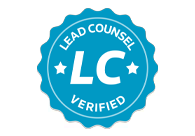
How Long Does Probate Take in Florida? Your Questions, Answered
- By Wendy Mara
When a loved one passes away, family members are often left wondering what happens next, especially when it comes to handling the person’s estate. Probate can feel overwhelming, particularly if you have never been through it before. Many families ask the same question: “How long does probate take in Florida?”
The answer depends on several factors, including the estate’s size, whether there is estate planning with a valid will, and whether any conflicts arise among heirs or beneficiaries. This blog will help you understand the probate process in Florida, key terms like testate and intestate, and what to expect from start to finish.
What Is Probate in Florida?
Probate is the court-supervised process of identifying a deceased person’s assets, paying debts, and distributing what remains to beneficiaries or heirs. Florida probate laws are designed to ensure fairness, transparency, and legal compliance during this process.
A probate administration lawyer plays an essential role by guiding the personal representative (also known as the executor) through each step, from filing court documents to managing estate assets and resolving disputes.
What Does “Intestate” Mean?
When a person dies intestate, it means he or she did not leave a valid will. In such cases, Florida intestate succession laws decide who inherits the estate. Assets go first to the surviving spouse and children, followed by parents, siblings, or other relatives.
How intestate succession works in Florida:
- If a surviving spouse has no descendants, the spouse inherits everything.
- If there are descendants and a surviving spouse, the estate is divided according to Florida Statute Chapter 732.
- The assets of the estate may be distributed to parents, siblings, or even distant relatives if there is no spouse or children.
Without a will, the process can take longer and may involve more court oversight. A probate administration lawyer can help ensure the estate is handled correctly under Florida law.
Testate vs. Intestate: Why It Matters
The difference between testate vs. intestate estates is significant. When someone dies testate, the decedent’s will typically designates a personal representative and outlines how assets should be distributed. A valid will makes probate smoother and faster.
In contrast, an intestate estate requires the court to appoint a personal representative and determine heirs based on state law. This can add time and complexity to the process, especially if family members disagree.
In either case, a probate attorney ensures that all legal requirements are met and that the estate moves forward efficiently.
How Long Does Probate Take in Florida?
The length of time probate takes in Florida varies widely depending on the type of administration and the complexity of the estate.
Summary Administration
For smaller estates, summary administration may be available. This simplified process can often be completed in one to three months, as long as:
- The value of the estate subject to probate is less than $75,000, or
- The decedent has been deceased for more than two years.
Summary administration is faster because it does not require the appointment of a personal representative and requires fewer court filings.
Formal Administration
Larger or more complex estates typically go through formal administration, the standard probate process in Florida. This process generally takes six to twelve months, though it can take longer if disputes arise or assets are difficult to locate or value.
During formal administration, the court issues Letters of Administration, giving the personal representative legal authority to act on behalf of the estate. The personal representative then gathers assets, pays debts and taxes, and distributes the remaining assets and property to beneficiaries.
Probate can last well over a year if there is probate litigation, such as challenges to the will or disputes among heirs
.
What Does a Probate Attorney Do?
A probate attorney in Florida helps families navigate the legal process of settling an estate.
A probate attorney’s responsibilities may include:
- Filing the necessary court documents
- Helping the personal representative obtain Letters of Administration
- Identifying, inventorying, and valuing estate assets
- Communicating with creditors and resolving claims
- Overseeing the distribution of property
- Handling probate litigation if disputes arise
An experienced probate litigation attorney is especially important when conflicts occur between beneficiaries or questions arise about the will’s validity.
Can a Personal Representative Be a Beneficiary?
Yes, under Florida estate laws, a personal representative can be a beneficiary of the estate. In fact, this is quite common. For example, a surviving spouse or adult child may serve as the personal representative and a beneficiary.
However, the personal representative must act in the best interests of all beneficiaries, not just their own. A personal representative has a fiduciary duty to manage the estate honestly and transparently. If disputes or accusations of misconduct arise, a probate litigation law firm may step in to represent the interests of one or more parties.
Common Causes of Probate Litigation
Probate litigation can occur for many reasons, including:
- Disagreements over the validity of the will
- Accusations of undue influence or fraud
- Disputes among heirs or beneficiaries
- Conflicts regarding asset valuation or distribution
- Questions about the personal representative’s conduct
When these disputes arise, it can significantly delay the probate process. Working with an experienced probate litigation attorney can help resolve conflicts efficiently and protect your interests.
Florida Estate Laws and Key Probate Terms
Understanding the terminology used in Florida probate cases can help you follow the process more confidently.
Here are a few key terms:
- Letters of Administration – The court documents that give the personal representative legal authority to manage the estate.
- Summary Administration – A simplified probate process for small estates or when the decedent has been dead for over two years.
- Formal Administration – The standard process for larger or contested estates.
- Testate – When the deceased person left a valid will.
- Intestate – When the deceased person did not leave a will, and state law determines heirs.
These concepts form the foundation of probate in Florida and are critical for anyone involved in administering an estate.
At Mara Law, our attorneys understand how emotional and confusing probate can be, especially for persons still grieving. With offices in Ormond Beach, Palm Coast, Daytona Beach, and DeLand, our team provides compassionate and experienced legal guidance throughout Volusia and Flagler Counties, in all areas of Florida probate and estate law.
Whether you are dealing with a straightforward estate or facing complex probate litigation, our lawyers can help. We assist personal representatives, beneficiaries, and families with every step of the process. From filing for probate administration to resolving disputes and ensuring that assets are distributed fairly, we are with you every step of the way. Our legal team aims to simplify the process and protect your loved one’s legacy with professionalism and care.
Frequently Asked Questions About Probate in Florida
Yes. Probate can sometimes be avoided using tools such as revocable living trusts, joint ownership, or payable-on-death (POD) designations. These arrangements allow assets to transfer directly to beneficiaries without court involvement. An estate planning attorney can help determine which options best fit your situation.
- What costs are associated with settling an estate through probate?
Costs vary depending on the complexity of the estate. Expenses may include court filing fees, attorney’s fees, publication fees, and appraisal or accounting costs. Florida law allows reasonable compensation for the personal representative and attorney based on the estate’s value.
- What happens if a person of interest contests the validity of a will?
If a will is challenged, the matter enters probate litigation. The court will review evidence to determine the will’s validity. Common challenges involve claims of undue influence, lack of capacity, or improper execution. These cases can extend probate significantly, so it is essential to have an experienced probate litigation attorney.
- What should I do first if I need to start probate?
The first step is to contact a probate administration lawyer who can review the estate and determine whether summary or formal administration applies. Your attorney will prepare the petition for probate and guide you through each step, ensuring compliance with Florida estate laws.
Navigate Probate with Confidence: Contact Mara Law, P.A.
If you are wondering “how long does probate take in Florida,” the answer depends on the size and complexity of the estate, whether a valid will exists, and whether any disputes arise. Simple estates may take only a few months, while complex or contested cases can last over a year.
Regardless of your situation, having a knowledgeable probate administration lawyer can make all the difference. From filing for probate to securing Letters of Administration and resolving conflicts, the right attorney helps ensure the process runs smoothly and fully complies with Florida probate laws.
The probate journey may seem daunting, but with experienced legal guidance from Mara Law, you can move forward with clarity, peace of mind, and confidence that your loved one’s wishes are honored. Our attention to details prevents costly errors. Call our office today at (386) 672-8081 or complete our online form to schedule an appointment with our legal team.
















